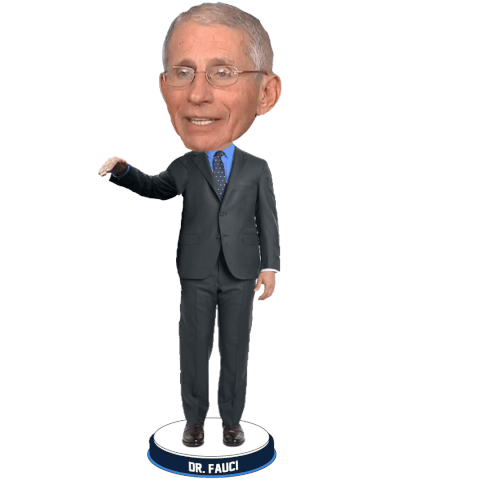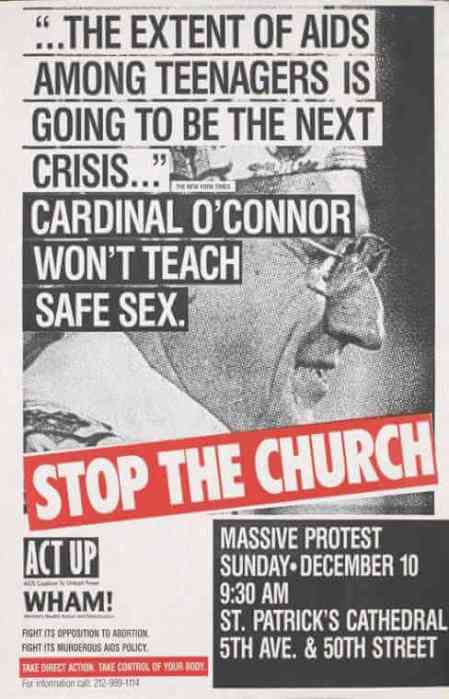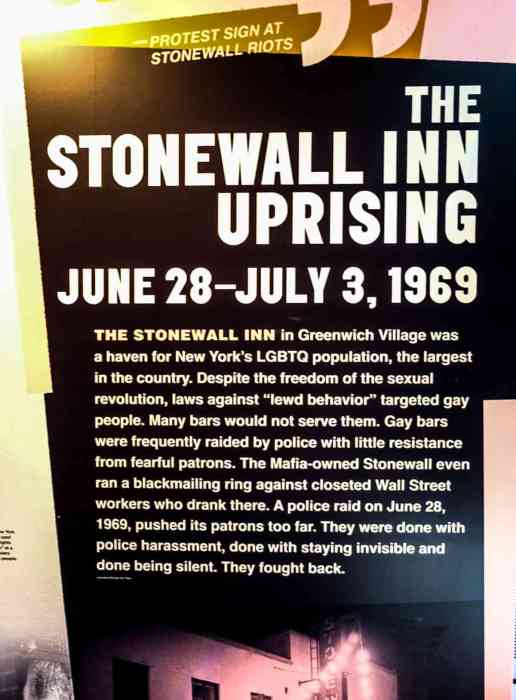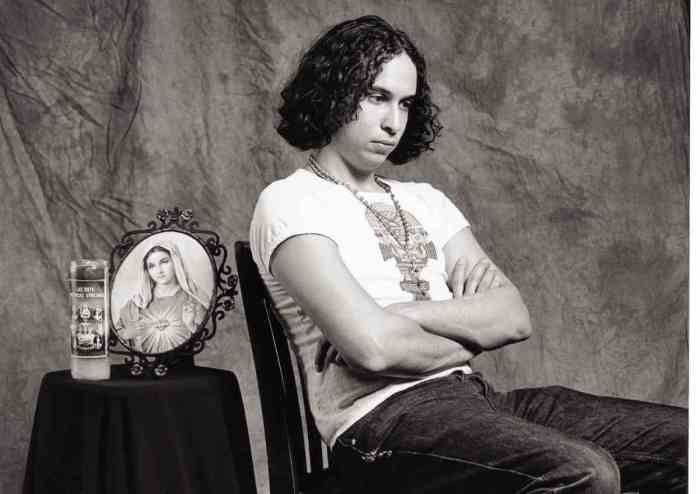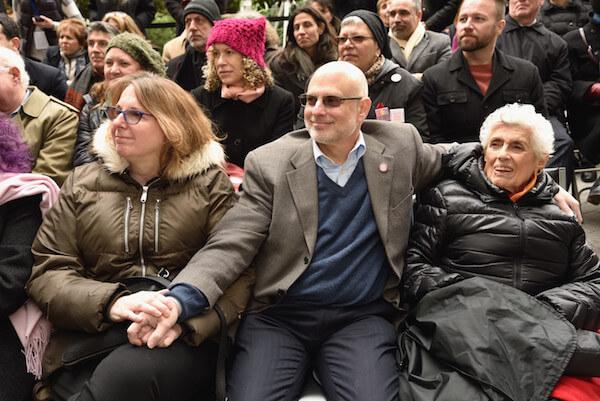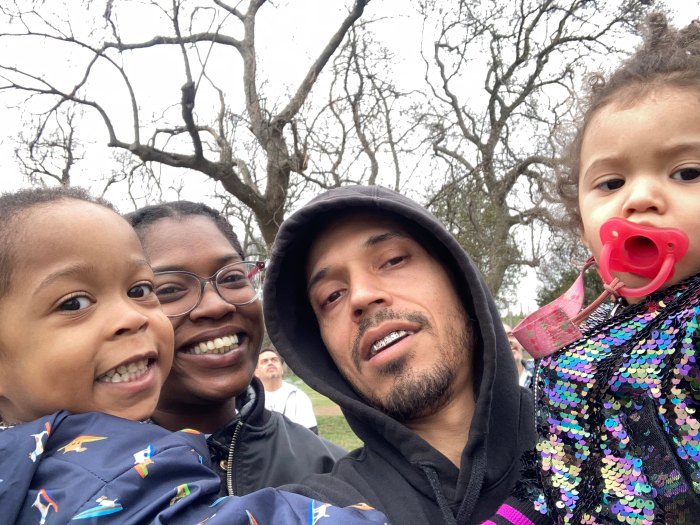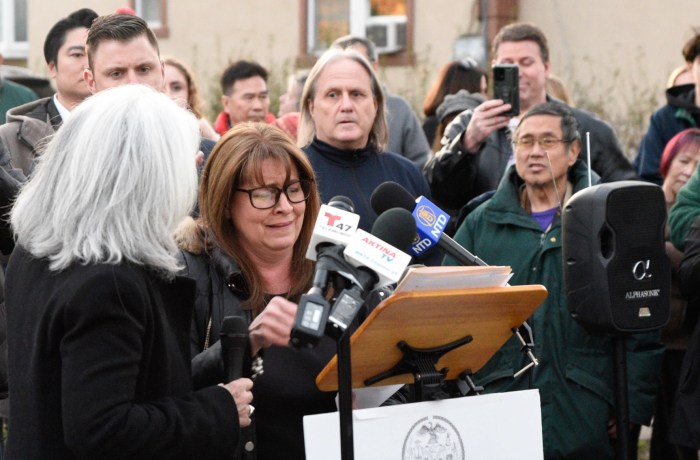The National Bobblehead Hall of Fame and Museum in Milwaukee — okay, who knew? — has unveiled a model of a bobblehead honoring Dr. Anthony Fauci, the longtime head of the National Institute of Allergy and Infectious Diseases who has been a key player in the federal response to the outbreak of the coronavirus.
The bobblehead, which shows Fauci in a suit explaining how to “flatten the curve,” is expected to ship in July and can be preordered now at store.bobbleheadhall.com/products/drfauci. The price is $25, $5 of which will be donated to the American Hospital Association in support of the 100 Million Mask Challenge, which aims to coordinate the efforts of manufacturers, the business community, and individuals nationwide to rapidly produce personal protective equipment for health care workers, which is now in critically short supply.
In an April 1 alert from Dr. Demetre Daskalakis, New York City’s deputy health commissioner for disease control, hospitals, nursing homes, and medical professionals were urged to reuse and conserve face masks, gloves, and gowns, despite the fact that more than one million N95 respirators, millions of face masks, and hundreds of thousands of gowns and gloves have recently been distributed citywide.
In announcing the bobblehead release, the Milwaukee museum said its action was done to “honor” Fauci, whom it described as “America’s voice of reason” — a clear reference to the counterweight he has provided to President Donald Trump’s stubborn resistance to giving the pandemic the serious public health attention it deserves.
Fauci became a notable public figure more than three decades ago when he faced angry calls from AIDS activists to lead a more robust federal government response to that epidemic — ACT UP founder Larry Kramer once termed him a “murderer.” The two men later collaborated and became friends.
Over time, however, the Brooklyn-born Fauci came to embrace the input of activists, according to thebodypro.com, loosening drug clinical trial requirements to hasten the development of new treatments, devoting resources to investigating HIV infections and treatments in underserved communities like women and people of color, and giving folks living with HIV a role in the planning committee of the federal AIDS Clinical Trials Group.
Recalling the activist anger directed at him in the earliest days of HIV/ AIDS, Fauci years later told medscape.com, “It was clear that something had to give. And at that moment, that something had to be me.”
Peter Staley, a leader in both ACT UP and later the Treatment Action Group, told thebodypro.com of Fauci, “He’s the man for this moment. He’s always had skills that are matched for epidemics. He’s one of the best scientists on epidemic control, but he can translate the complexities of epidemics into lay terms in a way that engenders trust to almost any audience he speaks to.”
In the wake of his work on HIV/ AIDS, the 79-year-ol Fauci, who earned his medical degree at Cornell University, went on to be a key play in the fights against SARS, the swine flue, MERS, Ebola, and the Zika virus. In 2008, President George W. Bush awarded Fauci the Medal of Freedom, the nation’s highest civilian honor. Fauci has worked under every American president since Ronald Reagan.
Despite Fauci’s longtime leadership and the respect he commands, he has become the target of right-wing conspiracy theorists who claim he is seeking to undermine Trump by making him look ill-equipped to lead the national battle against the coronavirus. That canard gained particular fuel because of a viral video clip of Fauci standing behind Trump and rubbing his bowed forehead as the president referred to the “Deep State Department.” (Trump, of course, is successful all on his own in demonstrating his incompetence during this crisis.)
The conspiracy theories have led to threats against Fauci, and on April 1 the Justice Department announced that he would be receiving increased personal security from the government.

